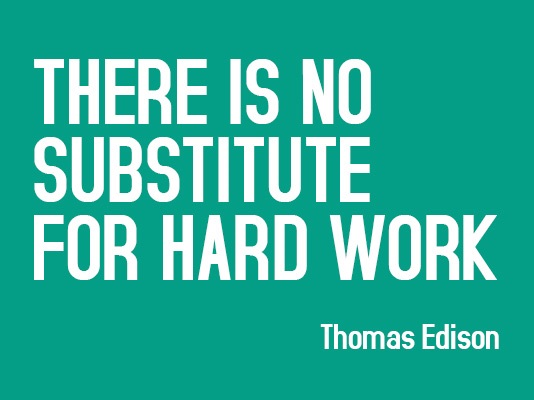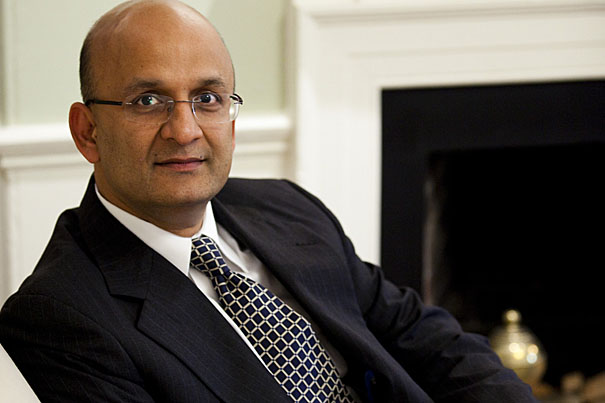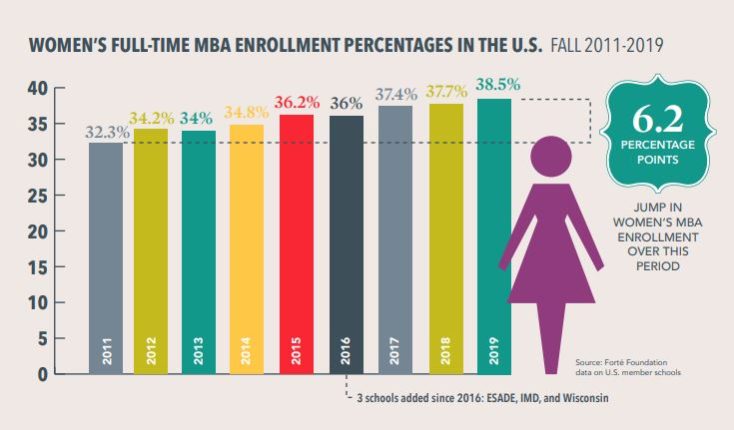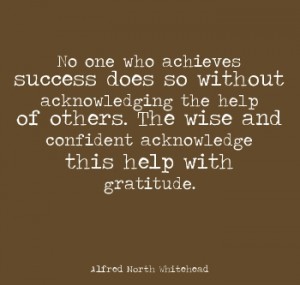Events & Promotions
| Last visit was: 25 Apr 2024, 05:37 |
It is currently 25 Apr 2024, 05:37 |

Customized
for You
Track
Your Progress
Practice
Pays
10:00 AM EDT
-10:30 AM EDT
10:00 AM PDT
-11:00 AM PDT
02:00 PM EDT
-03:00 PM EDT
03:00 PM PDT
-04:00 PM PDT
07:00 PM PDT
-08:00 PM PDT
10:00 AM PDT
-12:00 PM PDT
| FROM Stacy Blackman Consulting Blog: GMAC Sounds the Alarm Over Immigration Restrictions and the Global Race for Talent |
 Last week, the Graduate Management Admission Council (GMAC) unveiled Early Warning Signals: Winners and Losers in the Global Race for Talent. This comprehensive report examines the role immigration plays in fueling the productivity and growth of global economies. It also looks at the need to support international mobility of talent across borders. Additionally, it studies the critical role business schools play as gatekeepers to skilled immigration and talent development. The report analyzes data in the United States, Canada, the United Kingdom, India and China. It also includes the latest business school application data released by GMAC via the Application Trends Survey Report 2019. “Business schools are uniquely positioned to explain how mobility of talent connects to economic growth and vitality through our faculty research and expertise. However, as the developers of talent, we also have almost real-time data showing new trends in where talent is choosing to locate,” says Bill Boulding, Chair of the GMAC Board and Dean of Duke University’s Fuqua School of Business.  Bill Boulding, dean of Fuqua School of Business “We feel it is critical we share this information now with policy makers around the world as talent will be the most important factor in determining who wins and loses economically in the future. The issues we are raising are important not just in providing the opportunity to cross borders for education but also to foster robust and vibrant national economic activity.” Deans sound the alarm over immigration restrictions An open letter recently signed by 50 deans and 13 CEOS calls for substantial change in the U.S. approach to high-skilled immigration. The letter expresses urgent concern that the U.S. does not have the high-skilled talent it needs. Nor does it have the capacity to train enough people with these skills to remain competitive in a global economy. To prevent this trend from continuing, the signatories have proposed the following pro-growth policy reforms.
“Business schools don’t hold all the cards, however. Policy makers also have a responsibility to seed an environment conducive to student mobility. By doing so, they unlock innovation while helping to maintain diversity in the classroom, a critical aspect of graduate management education.”  Key Findings: Early Warning Signals: Winners and Losers in the Global Race for Talent provides a look into the current flow of talent into specific countries. It cites data from GMAC’s 2019 Application Trends Report, an annual snapshot of admissions trends for graduate business programs. Regions in which students desire to study are likely to be the winners in economic development. Attracting talent has implications for homegrown talent as well, by creating hubs of innovation and economic growth. View of the United States In 2019, the United States experienced a 13.7 percent decline in international business school applications. This was a steeper decline than any other country in the world. Notably, this drop came amidst largely rising or stable applications everywhere else in the world. Conversely, both Canadian and European programs saw application increases, which were driven primarily by rising international demand. For the US, these numbers are a worrisome indicator for the future mobility of talent. Specifically, this hits business leaders, who cite the hiring and retention of talent as their number one business concern. Find MBA recently covered this precipitous drop, noting that plunging apps in the US is good news for Europe. View of Canada Canada saw an 8.6 percent uptick in international business school applications in 2019. This follows on the heels of a 16.4 percent increase in the prior year. We take this as a positive signal for the country’s future mobility trends. Canada also gained 286,000 permanent residents in 2017. In fact, the country aims to have a total of 1 million new residents by 2021. Because the focus is on high-skilled labor, Canada should enjoy economic benefits in the years and decades to come. View of the UK Three in five UK firms experienced a more difficult time finding talent over the previous year. Additionally, 50 percent expected the UK’s skills shortage to worsen further in the future. However, 61 percent of UK business programs reported an increase in international applications in 2019 over the prior year. Furthermore, the share of GMAT score reports sent to UK programs has increased slightly since 2016. This data is according to a report released by GMAC in March of 2019. View of India A view of business school application data shows that the movement of talent from India to other parts of the world continues. At the same time, there is increasing interest in domestic schools. The percentage of Indians sending their GMAT scores to US schools fell from 57 percent in testing year 2014 to 45 percent in testing year 2018, according to the most recent GMAC data. During that same period, the percentage of Indian GMAT test takers sending their test scores to Indian schools rose from 15 to 19 percent. View of China According to GMAC’s Application Trends Survey Report 2019, Chinese business schools saw a 6.8 percent increase in domestic applications this year. Domestic volumes were also up year-on-year at 73 percent of programs. While 86 percent of applicants to these programs currently come from within the region, the rising profile of China’s business schools could begin to attract a more global pool of candidates. China is now home to six of the Financial Times’ Global Top 50 MBA programs. This includes the fifth-ranked overall school, China-Europe International Business School (CEIBS). In 2009, just two of the top 100 were in China. The post GMAC Sounds the Alarm Over Immigration Restrictions and the Global Race for Talent appeared first on Stacy Blackman Consulting - MBA Admissions Consulting. |
| FROM Stacy Blackman Consulting Blog: How Not to Tank Your MBA Admissions Interview at HBS |
 Are you gearing up for an MBA admissions interview at Harvard Business School? Lucky you, as HBS interviews just 25% of applicants each season. Make sure to avoid the following faux pas during your MBA admissions interview at this prestigious business school. Don’t even think about winging your MBA admissions interview. Harvard Business School interviewers love to throw off applicants with rapid-fire questions to test how well you know your resume and essays. If you don’t practice for this interview, you’ll really hurt your chances of admission. Think of a few compelling anecdotes that you can adapt to fit the most common HBS interview questions. The anecdotes you share about your past experiences — both successes and failures — will give the interviewer some insight into your self-awareness and maturity. Make sure to practice in front of a friend, and consider recording yourself as you rehearse. That way, you can assess your body language and tone and make adjustments as needed. Don’t try to be the “ideal” MBA candidate. While it’s tempting to want to present yourself as the picture-perfect applicant, your interviewer is trying to suss out what exactly you, and nobody else but you, can bring to the program. Speak candidly about your passions, interests, and professional goals. Your story should reveal how you confront life choices, the values and principles that help you negotiate complex situations, your beliefs, and your worldview. That way, you’ll come across as a fascinating person who has a lot to share with future classmates. In short, a great addition to the HBS MBA program. Don’t bore your interviewer. Another thing to keep in mind: Your interviewer may interview dozens of candidates. That means a lot of eager future-moguls talking about the same thing: themselves. So whenever possible, make the interview a conversation, not a monologue. By including the interviewer in the conversation, you’ll keep them interested and engaged in the most important topic of all: YOU. Don’t forget to ask questions, too. Come armed with a brief list of questions that highlight your knowledge of and interest in the school. If interviewing with an alum, it’s easy to engage in a comfortable conversation about their experience at the school. Not only will you learn more about HBS, but by asking thoughtful questions your interviewer will get another opportunity to see your insightful way of thinking. Harvard Business School admits roughly half of all applicants they interview. Ultimately, your goal is to answer all questions in a clear, logical way. Also, maintain an open, friendly, and professional demeanor. And don’t forget to dress appropriately! Finally, show that you have an inquisitive attitude about the school and all that it has to offer students. If you can master these tips, you stand a very good chance of coming out of the interview with flying colors. A version of this post originally appeared in October 2018. It has been updated. The post How Not to Tank Your MBA Admissions Interview at HBS appeared first on Stacy Blackman Consulting - MBA Admissions Consulting. |
| FROM Stacy Blackman Consulting Blog: How a School Visit Affects Your MBA Chances |
|
You might have experienced a moment of panic as you began to work on your MBA applications for Round 2. It may have occurred after you took note of the January deadlines. And it could have gone something like this: “Wait a second — I won’t have time for a school visit before my materials are due! Does that put me at a disadvantage?” The answer is no. If you weren’t able to sit in on a class or take a campus tour of a program you’re interested in before it’s time to submit your application, you’re not going to be dinged for it. International applicants definitely don’t have to fret over this. No admissions committee member is going to expect candidates to shell out thousands of dollars for a multi-day trip to their school before they’re even admitted. You’re going to be paying enough money for tuition as it is! The same logic applies for cross-country applicants in the United States. Adcoms understand that it may be impossible for you to take time off of work for a school visit. Or, cost constraints might prevent you from visiting a campus that’s hours and hours away. That said… What if you live in, say, Manhattan, and will apply to several programs within a fairly close radius? A school visit would certainly help prove that you’re serious about applying. Plus, it could help differentiate you from other similar applicants. However, it’s hard to believe that sitting in on a class could outweigh any red flags in your materials. The adcom is going to judge you on your years of accomplishments at school and at work — not whether you were able to visit them in person. Similarly, if you live in or are otherwise going to be near a city that’s home to a program you’re interested in and you have time to spare, why not swing by? It’s even easier if the school comes to you in the form of a traveling road show. Many top programs hold informational events in cities across the world, and their web sites list these schedules. Even easier is dialing or logging in to an online admissions webinar hosted by your dream school. From diving into a program’s extensive web resources to talking to alums to experiencing a class firsthand, there are several ways to get to know a particular business school better. You certainly don’t have to stress out if you’re not able to make it to campus. That won’t be what’s going to ultimately determine whether you get in or not! Remember:  Until next time, The team at Stacy Blackman Consulting ***Do you want to stay on top of the application process with timely tips like these? Please subscribe to our weekly newsletter and you’ll receive our expert advice straight in your mailbox before it appears on the blog, plus special offers, promotions, discounts, invitations to events, and more. The post How a School Visit Affects Your MBA Chances appeared first on Stacy Blackman Consulting - MBA Admissions Consulting. |
| FROM Stacy Blackman Consulting Blog: 7 Signs Stress at Work is Crushing Your Soul |
 Unless you’re a Zen master yogi, everyone has occasional stress at work. But how can you tell whether what you’re feeling is garden variety workplace frustration, or a more serious depression? Scan these seven red flags to help you evaluate if your job is sucking the life right out of you. You have no work/life balance The work/life balance struggle is real. See if you recognize any of these warning signs that you have fuzzy work and home boundaries. Do you immediately answer work texts and emails after hours and on weekends? Do your friends or partner complain they never see you? Has your energy level tanked lately? If any of this sounds familiar, your work-life balance is out of whack. Continuing to function this way for a prolonged period has serious repercussions. Studies show that poor work-life balance can lead todismal health later in life. Self-care is crucial. You’re dealing with workplace bullying Bullying behavior at the office can take many forms and can involve bosses, coworkers, or clients. Does a supervisor change work arrangements on a whim to deliberately inconvenience you? Unreasonable or constantly shifting deadlines would keep anyone on eggshells. Do you have a colleague who loves to “joke” by belittling or demeaning you in front of other people? You don’t have to be the direct target of the bullying behavior to suffer its effects. Daily immersion in this kind of toxic work environment would crush anyone’s morale. You’re worried about losing your job Research suggests constantly worrying about losing your job is worse for your health than getting straight up fired. Sociologist Sarah Burgard of the University of Michigan explained this phenomenon in the journal Live Science. In two different studies, people persistently concerned about losing their jobs reported significantly worse overall health, and felt more depressed than those who had actually lost and regained their jobs recently, Burgard found. When you don’t know what the future will bring, and you can’t do anything until the shoe actually drops, that uncertainty can do a number on us. You’re getting sick more often Increased levels of the stress hormone cortisol wreak havoc on the immune system. Our emotions affect our physical health. Constant stress at work leaves us vulnerable to catching every pesky cold floating around. If you’re getting sick more often than you used to, it could signal that stress and depression are affecting your body’s ability to fight off infection. You don’t care about your job performance When your work feels emotionally draining, even mundane tasks like answering emails can drag you down. The fancy HR term for this ispresenteeism, AKA going through the motions on autopilot. If you feel no real connection to your colleagues or clients, find yourself procrastinating a lot, or have completely lost interest in your work, it’s time to find out whether moving on to something new is the best next step. You’ll do anything to avoid the office ACenters for Disease Control and Prevention (CDCP) report estimated that depression causes 200 million lost workdays in the U.S. each year. In a 3-month period, the CDCP estimated that depressed employees miss an average of 4.8 workdays. Plus, they average 11.5 days of reduced productivity. Many of us suffer from the “Sunday Sads.” You know, that feeling of dread that creeps up when you realize Monday and it’s never-ending To-Do List is almost here. But if you experience the Sunday Sads straight through ’til Friday, work is the likely culprit. You feel hopeless and stuck Your job could be at the root of your depression if it’s not letting you grow. Maybe you’re burned out, or feel like you’ve hit a dead end career-wise. If you don’t enjoy what you spend at least a third of your life doing, then something needs to change. Do you recognize any of these signs in your own work life? If so, don’t just suck it up and accept the grind. Find ways to get help for your job-induced misery and start polishing that CV. When you’re ready, start looking elsewhere for work that won’t make you sick. *** Did you enjoy this post? It originally appeared on the Blacklight, our new newsletter for professionals. the Blacklight aims to illuminate with every dispatch that lands in your inbox. If you’re thirsty for guidance to help you slay it at work or as a student and move your goal posts closer, sign up today! Main image credit: Flickr user Rachel.Adams (CC BY-NC-ND 2.0) The post 7 Signs Stress at Work is Crushing Your Soul appeared first on Stacy Blackman Consulting - MBA Admissions Consulting. |
| FROM Stacy Blackman Consulting Blog: What Does a Winning MBA Application Strategy Look Like Today? |
 Many of you have probably heard about the decline in applications to US business schools. However, the booming job market and higher acceptance rates actually make it an excellent time to pursue an MBA degree. Find MBA‘s Seb Murray recently looked at what applicants should keep in mind if they hope to come up with a winning MBA application strategy and a spot at their school of choice. The competencies that business schools seek have not changed much, SBC shares in Murray’s piece. But there’s an increasing priority on getting to know the individual applicant’s authentic life story and character. More focus on soft skills Soft skills are an important set of personal attributes that enhance one’s interactions, job performance, and career prospects. They are also a cornerstone of a winning MBA application strategy. The days when the ‘hard’ skills of analytical and strategic thinking dominated are over. Now, it’s oral and written communication, presentation, adaptability and the ability to negotiate that companies want the schools to teach. Again this year, NYU Stern School of Business asks for two EQ (emotional intelligence) endorsements with your application. The endorsement must come from someone who knows you personally and/or professionally and can act as a persuasive advocate of your EQ strengths. Along the same lines, the Yale School of Management has added a behavioral assessment to the MBA application to better identify high potential candidates. “We wanted more confidence to assess applicants who don’t perform as well on traditional measures while also looking at those who perform very well on the tests and wind up underperforming in school,” noted Laurel Grodman, the school’s Managing Director of Admissions. Ever-evolving technology and greater efficiency Applicants to the full-time MBA programs at NYU Stern have a new option to fulfill the standardized test requirement. Beginning with the current 2019-2020 admissions cycle, applicants can now choose to take GMAC’s Executive Assessment (EA). The Graduate Management Admissions Council designed the EA to evaluate business school readiness in the context of career experience. According to NYU Stern Executive Director of MBA Admissions Rabia Ahmed, “As a school on the move, we recognize that business is rapidly evolving, and we’ve responded with new program options as well as innovations in our admissions process, such as the EQ Endorsements, to ensure we are assessing talent for today’s changing workforce.”  Meanwhile, digital elements such as videos allow the admissions committee to see an applicant’s presentation and interpersonal skills. This helps them determine if you are confident and if you have any communication faults. Programs want candidates to be authentic. They also want to evaluate an applicant’s creativity as well as their ability to think on their feet. From an admissions standpoint, videos allow the adcom to make better decisions about which candidates are the strongest match with the program. This is also a way for them to see how candidates can handle an uncomfortable or awkward situation. They want to see how a candidate operates outside of their comfort zone. Also, it helps them judge whether the “real you” matches the impression you’ve built through your other materials. With these updates in MBA admissions, schools continue to raise the bar on the key requirements of a winning MBA application strategy. Shifting demographic trends As we shared with Find MBA, far more people from the technology industry are applying. Meanwhile, fewer overseas students are applying to US MBAs overall. Applicants from companies including Google, Amazon, Uber, and LinkedIn are applying in high numbers. Candidates from startup tech companies are also a larger presence in the applicant pool. This means that tech applicants will find the process more competitive this season. At the same time, strong overseas candidates should see easier admit odds. Remember… Focus on what you can share with your classmates that would be valuable to them—experience or knowledge that others can learn and benefit from. Although negotiating your acceptance into a top MBA program seems daunting, by showcasing your individuality, you can do so with success. The post What Does a Winning MBA Application Strategy Look Like Today? appeared first on Stacy Blackman Consulting - MBA Admissions Consulting. |
| FROM Stacy Blackman Consulting Blog: Surviving Your First Ding |
|
Last month, some elite business schools sent out their Round 1 interview invitations, along with “release” notices to the majority of applicants. That means thousands of MBA hopefuls around the world recently received their first big fat DING. While some people can easily shrug off this unfortunate news, others have a tough time dealing with what they see as “rejection.” If you are one of the applicants who didn’t receive good news last month, we want to remind you why you should keep your chin up. First off, all of the top MBA programs are notorious for being extremely selective. Out of every 100 people who submit materials, only 7 to 12 receive admissions offers. In other words, it’s very much a numbers game when you’re applying to such competitive programs. There are only so many spots for an overwhelming number of thoroughly talented candidates. A ding doesn’t mean you’re not qualified As such, a past dean of Harvard Business School used to kick off his speech to new first-year students by stating that the school could’ve easily added an additional 900 equally qualified candidates to the graduating class. His point? Namely, that while admitted students were certainly accomplished and deserving, a little bit of luck played into their outcomes as well. People who have always reached every single goal they’ve ever gone after may find a ding hard to process. But it’s the truth. Once you’ve pulled together a strong application and hit “submit,” the process is out of your hands. You will never know who (or how many people) competed against you for a spot; who read your application; or what kind of mood they were in that day. Fortunately, a ding from a certain school is only the result of that school. It has absolutely no bearing on what you’ll hear from other programs. So there’s no need to panic or to question your approach. You should remain hopeful that positive news from another school may be right around the corner. Remember:  Until next time, The team at Stacy Blackman Consulting ***Do you want to stay on top of the application process with timely tips like these? Please subscribe to our weekly newsletter and you’ll receive our expert advice straight in your mailbox before it appears on the blog, plus special offers, promotions, discounts, invitations to events, and more. The post Surviving Your First Ding appeared first on Stacy Blackman Consulting - MBA Admissions Consulting. |
| FROM Stacy Blackman Consulting Blog: Is an MBA Still Relevant? Definitely, According to These B-School Deans |
 Are you contemplating an MBA for career advancement, personal development, or a career switch? You may have mixed feelings as a result of news stories covering the recent dip in applications. You might ask yourself, is an MBA still relevant? We know b-school hopefuls love to hear advice from the experts. Bloomberg Businessweek recently spoke to several deans for their take on whether an MBA is still a sought-after degree. “The skills you learn in an MBA are probably more valuable than they have ever been,” Antonio Bernardo, dean of UCLA Anderson School of Management, tells Bloomberg Businessweek. “And yet a lot of people are talking about it as if it’s a degree that is losing relevance.” Bernardo cites the fact that, especially in the tech sector, businesses today interact much more with stakeholders—including regulators. MBA courses, says Bernardo, teach students how to deal with an array of ethical and legal issues corporations might face. Meanwhile, Dean Matthew Slaughter of Darmouth’s Tuck School of Business tells Bloomberg Businessweek he foresees a steady pool of applicants for MBA programs because the degree provides the hard skills and leadership training that businesses will continue to require. Slaughter adds that Tuck continues to adapt its curriculum to keep up with student and employer demands. Over at Northwestern University’s Kellogg School of Management, its new(ish) dean Francesca Cornelli says the MBA is still relevant because of the importance teamwork and collaboration will continue to play in tomorrow’s business landscape. “We are not just preparing you for the next job or the next five years,” she tells Bloomberg Businessweek. “We are preparing you to thrive in the world of change.” These key career benefits make the MBA still relevant Business school grads typically enjoy a solid ROI through substantial salary increases. But they also benefit by deepening the knowledge, skills, and abilities they will need for future professional success. The MBA degree strengthens many skills. We’re talking leadership, intellectual creativity, analysis and critical thinking, cross-cultural awareness, communication, even greater IT mastery. All of these will serve you well as you find your way toward your ultimate career goal. To see what the deans of Weatherhead School of Management at Case Western University and Marriott School of Business at Brigham Young are saying about the MBA degree, follow the link above to the original article. The post Is an MBA Still Relevant? Definitely, According to These B-School Deans appeared first on Stacy Blackman Consulting - MBA Admissions Consulting. |
| FROM Stacy Blackman Consulting Blog: HBS Dean Nitin Nohria to Step Down in 2020 |
Harvard Business School Dean Nitin Nohria has announced he will step down in June 2020. This will conclude ten years of service as the school’s tenth dean. In a message to faculty, staff, students, and alumni, Nohria said the time is right for HBS to transition to new leadership. “Ten years gave us a good run to make progress on our ‘Five I’ priorities,” he noted, referring to the school-wide focus on innovation, intellectual ambition, internationalization, inclusion, and integration that has been a hallmark of his tenure. “Serving as Dean has been a privilege for which I am immensely grateful. A decade seems an appropriate duration for this chapter in the School’s history.” Nohria says he will take a sabbatical beginning in July 2020. He joined the Harvard Business School faculty in 1988 after receiving his Ph.D. from MIT. Before his appointment as Dean, he served in several leadership roles at HBS. They include Chair of the Organizational Behavior Unit, Co-Chair of the Leadership Initiative, and Senior Associate Dean for Faculty Development. Nohria is a prolific scholar, with more than a dozen books to his name. He is also the author of the McKinsey Award-winning 2018 Harvard Business Review article, “How CEOs Manage Time.” Highlights of the Nitin Nohria Deanship As dean, Nohria upped the experiential aspect of the program by instituting a new, required year-long course. Field Immersion Experiences for Leadership Development (a.k.a. FIELD) provides students with intensive, immersive, small-group opportunities to develop leadership, global, and integrative intelligence. The school came under intense scrutiny in 2013 as it celebrated 50 years of women at HBS while still grappling with gender inequity and sexism. In January 2014, Dean Nitin Nohria addressed the subject at an alumnae event, where he apologized to female students and professors past and present for any sexist or offensive behavior they experienced at the business school. In that speech, he said the school owed them better. He also promised to make swift changes to address the inequalities that still exist. Under Nohria’s leadership, HBS entered the digital learning platform market in 2014 with the introduction of HBX CORe. This program taught business fundamentals (Business Analytics, Economics for Managers, and Financial Accounting) to college students and new workforce hires.  Notably, Nohria has raised more money than any other business school dean in history. During his deanship, the HBS endowment grew from $2.1 to $3.8 billion as of June 30, 2019. The school’s annual revenues have also increased from $509 million to nearly $1 billion. That enabled significant investments in the Harvard Innovation Labs, which foster innovation and entrepreneurship across the Harvard community. Looking to the Future In his announcement, Nohria thanked Drew Faust, who served as Harvard’s president from 2007 to 2018, for her support. “I will always be grateful to Drew for her confidence in appointing me, her mentorship, and her inspirational vision for Harvard as One University,” he said. Meanwhile, Faust had this to say about the outgoing dean Nitin Nohria. “He took to heart the School’s mission of educating leaders who make a difference in the world. Whether launching new pedagogies, investing in the faculty and their research, or building bridges from the Business School to other parts of Harvard, Nitin has positioned HBS well to face the 21st century.” Harvard University President Larry Bacow said that he would soon initiate a search for a new dean. “For today, all of us owe Nitin our admiration and thanks for his outstanding service to HBS and Harvard.” The post HBS Dean Nitin Nohria to Step Down in 2020 appeared first on Stacy Blackman Consulting - MBA Admissions Consulting. |
| FROM Stacy Blackman Consulting Blog: What Does the Adcomm Focus on When Evaluating Your MBA Candidacy? |
 Every year, we hear of MBA admissions offers going to Olympic athletes, NASA scientists, and former White House aides. While these profiles grab the headlines, they can discourage candidates without a flashy personal or professional story. Business school applicants can’t help but fret over what their target MBA programs want to see in a candidate. In truth, the admissions committee focuses on four specific areas when evaluating your MBA candidacy. The welcome news for applicants of all stripes is that standing out in these aspects can happen no matter where you’ve worked before or what background you have. Work Experience and Professional Goals In general, the admissions committee likes applicants to have three or more years of work experience before applying. But the quality of the overall experience matters much more than length. Have you worked within flat organizational structures, where you’ve had the same title for years? You can still differentiate yourself by highlighting substantial professional growth and quantifiable achievements. Or, by showing examples when you embraced new challenges and took advantage of learning opportunities. Whether your pre-MBA experience is at Goldman Sachs or your family’s business, the admissions team will look for steady progression. Business school is the ideal place to refine your career goals through the study of new disciplines, discussions with students and professors, and the pursuit of entrepreneurial projects. That said, you do have to make some choices and explain your areas of interest to get admitted. Make sure to include a definite role you envision for yourself in the future. Explain the kind of impact you want to have in the business world and on society. Successful essays won’t include the statement, “I look forward to figuring out my future career path in business school.” Finally, remember to convey realistic post-MBA career goals. Consider the application process from the school’s perspective. MBA programs want to launch graduates who will go on to become successful in their careers. Grads also serve as vibrant members of the alumni community. Don’t forget to sell them on your employability. The admissions team should feel confident you’ll find a great job quickly upon graduating. Leadership Business schools strive to create the leaders of tomorrow. The admissions committee wants to see that you have a framework already in place in this all-important area. Lots of applicants worry about how the admissions team will perceive their leadership skills if they’ve never actually held a management position. However, your leadership examples don’t need to be your most extraordinary life or professional achievements. Applicants can call upon times when they’ve lead sports teams, student groups, etc.  Successful leadership examples should show how you motivated other people. Did you bring out their passions? Or, did you educate and help them see organizational priorities in new ways? The work of a leader energizes or improves the work of others. Find anecdotes from your professional and extracurricular background that illustrate this kind of behavior. Define the leadership challenges you faced, not the management ones. Collecting impressive titles does not make someone a great leader. However, helping a team overcome significant challenges does. When evaluating your MBA candidacy, keep in mind that in the adcomm’s view, your past is a strong predictor of how involved you’ll be on campus if admitted. Ultimately, leadership examples from college, on the job, and during your time at business school signal to future employers how you would perform in their organization. Creativity and Intellectual Aptitude When some Type-A personalities see the word creativity in this context, they freak out and assume we’re talking about something artistic. Really, we’re referring to expressing creativity by showing when you have solved problems at work or in your volunteer activities by thinking outside of the proverbial box.  Some business schools use creative MBA essay prompts. Think Duke Fuqua’s 25 Random Things About Yourself. Or the cover letter and video statement at MIT Sloan School of Management. When evaluating your MBA candidacy, admissions teams will look for evidence in responses that show you have a unique perspective that will add something new to the classroom. So, think beyond your obvious achievements. You can differentiate yourself by highlighting the most compelling, memorable stories and experiences. Intellectual aptitude, meanwhile, will be judged based on your submitted GMAT or GRE scores as well as your undergraduate GPA and major. A solid 3.2 overall GPA from an Economics or Chemistry major will weigh more heavily than a 3.8 GPA in the Arts or Humanities. However, admissions committees actively seek a diverse class that includes those so-called “poets of b-school.” That’s where a strong GMAT score, or taking additional college-level math courses that prove you can handle the academic rigors of the program, comes in. Interpersonal Skills and Fit The admissions process at a growing number of business schools now includes video essays, team-based discussions, and group interviews. These additions ensure the applicant has the appropriate interpersonal skills for success and will fit in well with the program’s culture.  Business schools want students who will play nice with others. Watching how someone interacts with peers before anyone’s even admitted can be very telling. Your application and interview should support those individual attributes that make you a great candidate and person overall. They should reveal your understanding of the school’s culture. Finally, they must convey that you will be a terrific fit if admitted. At some schools, fit and knowledge of the program matter as much as concrete qualifications when evaluating your MBA candidacy. Of course, you still need to have those qualifications. But without a full understanding of the many terrific facets of the school, you could find yourself on the rejected applicant pile. Round two application deadlines are just around the corner. By evaluating your MBA candidacy in these four areas, you’ll boost your chances of making it to the interview stage and beyond. photo credit: Solent Creatives (CC BY 2.0) The post What Does the Adcomm Focus on When Evaluating Your MBA Candidacy? appeared first on Stacy Blackman Consulting - MBA Admissions Consulting. |
| FROM Stacy Blackman Consulting Blog: Should You Specialize Your MBA Degree? |
 Unlike a master’s degree in finance or accounting or another specialty, an MBA is, by definition, a generalist program. It exposes students to many different disciplines—both hard subjects like finance and soft like organizational behavior. If you’re contemplating business school, think about whether you’d prefer a general management approach or one that offers majors or concentrations. Whether you choose to be a generalist at business school or to specialize your MBA degree depends heavily on your career’s end goals. Advantages of a Generalist MBA Degree Business schools seek students who will not only get hired after graduation but eventually run the firm. Most applicants see business school as a way to grow as a leader and advance their careers. The degree imparts a strong foundation of general business knowledge. Here, students gain a complete understanding of how various departments operate. MBA students typically come to b-school with a clear career goal in mind after graduation. Yet, business school is an excellent time to explore a variety of subjects that may ultimately redirect your path. Today’s professionals want long-term flexibility in the global marketplace. To that end, career-switchers need courses that prepare them for the management responsibilities they will encounter in whichever sector they end up. A potential drawback to a general MBA is that you may not acquire the depth of knowledge required for a particular position. However, the broad range of career opportunities that comes from earning an MBA at a top program is invaluable. Advantages if You Specialize Your MBA Degree MBA specialization is a good move for individuals who know precisely what they want to do with their careers. Likewise, it’s excellent for those who want to build a stronger skill base in that niche area. If you already know that you’re interested in an area like digital marketing, real estate, business analytics, social innovation, health care, and so forth, then earning an MBA with a concentration can make you even more marketable. Recruiters like to see a strong focus on a particular field or functional area. We’re in a highly competitive job market. Having that specialization on your resume, plus a supporting internship or extracurricular activities, will help you stand out from the crowd. Students who specialize can also grow their niche network during the MBA program. That way, they’re ready to hit the ground running on day one. Drawbacks of a Specialized MBA Degree While specializing in a specific area of business is fine, know that it can be limiting. One could even argue that you should earn a degree in that specialty instead. Depending on the career path you have chosen after graduation, by specializing, you could inadvertently pigeonhole yourself and narrow your job prospects, especially if you’re a career-changer. The classroom experience may differ notably for specialists. A traditional MBA experience includes classes full of people with diverse and enriching perspectives. Participants in the same specialization will likely have similar backgrounds and professional experiences from which to call on. Ultimately, when you’re running a company, chances are you won’t be pulling together the financial models or balancing the books. Understanding those aspects is undoubtedly important. But you don’t need to be a master—ideally, you will hire others to do the deep dive. Whether you choose to pursue a general program or specialize your MBA degree, pay close attention to all of your classes – even the areas you would plan to outsource when you have the budget. The post Should You Specialize Your MBA Degree? appeared first on Stacy Blackman Consulting - MBA Admissions Consulting. |
| FROM Stacy Blackman Consulting Blog: Women in MBA Programs Reach Record Numbers |
|
It’s tempting to dismiss the existence of any gender differences in the MBA application process or student life. But you don’t have to look back very far to see just how controversial the subject still is, even at elite programs such as Harvard Business School. Will the tide finally turn now that there’s a record number of women in MBA programs? In 2018, USC Marshall became the first major business school to reach gender parity. A record-smashing 52% of the incoming full-time MBA class was female. According to new research from the Forté Foundation, U.S. b-schools average 39% women per MBA cohort, compared to 26% outside the US. Of the 54 schools surveyed, 19 had 40% or more women enrolled. In fact, just over 35% of Forté’s membership schools are ahead of the curve, hitting the group’s 2020 target for at least 40% gender equity in all of their member schools. In 2005, only three business schools enrolled more than 35% women in MBA programs.  How the MBA admissions committee sees it A new article in Quartz explores the surge of women in MBA programs, as explained by three MBA admissions heads. Washington University’s Olin Business School came closest to achieving parity this year, with 49% female enrollment. Ruthie Pyles Stiffler, assistant dean and graduate admissions director at Olin, tells Quartz that student groups like Olin Women in Business “have played a tremendous role in our ability to attract and retain top women talent.” Affinity groups like these assure prospective MBA students that they will find a supportive community on campus. “Learning about what OWIB does at Olin for women was a really big draw,” Alex Halfpap told Quartz, noting that she felt the group was “really focused on helping Olin women grow and thrive.” Meanwhile, admissions director Soojin Kwon at Michigan Ross School of Business considers the school’s Michigan Business Women group a draw for applicants. The group “works closely to connect with prospective students on the front end,” Kwon tells Quartz, noting that membership in Michigan Business Women has doubled in the past five years even as Ross’s class size has stayed the same. (Michigan Ross has 45% female enrollment for the MBA Class of 2021.) The Wharton School at the University of Pennsylvania admitted a class with 47% women this fall. Blair Mannix, director of admissions for the MBA program, says the school has a highly collaborative and welcoming culture. Wharton’s grade non-disclosure policy is just one example of how the school shuns the toxic elements of a competitive culture, Mannix tells Quartz. The goal is to get students focused on challenging themselves instead. “We want women to take risks in coursework,” Mannix says. “We want you to take a class you might not do well in.” Tips for women applying to business school Now, for the $64,000 question: Are there specific tips and tactics just for women who are applying to business school? These tips won’t apply to every female applicant. But certain demographic stereotypes persist, and having an awareness of these red flags makes good sense. We have worked with several clients whose recommenders received calls from the admissions committee to probe on specific points. In particular: “Is the applicant confident, will she speak up in class discussions, is she timid, etc…” Almost all of these anecdotes have occurred with female clients. In the application process, women must exude comfort and confidence. Essays, interviews, and recommendations need to indicate a comfort level with speaking out, defending points of view, and collaborating with all types of people. An interview coach we know also had this note for women: Don’t play with your hair. Avoid fiddling with jewelry. Don’t adjust your clothing. Just focus on looking your interviewer straight in the eye and answering questions with complete focus and confidence. Some male-dominated career paths, such as investment banking, need more women on board. Therefore, women in MBA programs targeting finance may have an advantage over one pursuing a role in brand management. This is true in the MBA admissions process as well as in the job search.  source: Forté Foundation data If more women become interested in business school earlier in the pipeline, we’ll see the numbers continue to rise. Ultimately, better representation in the C-suite means more equality, which contributes to a stronger economy and, ultimately, a positive effect on society and the next generation of women. The post Women in MBA Programs Reach Record Numbers appeared first on Stacy Blackman Consulting - MBA Admissions Consulting. |
| FROM Stacy Blackman Consulting Blog: Time to Thank Those Supporting Your MBA Dream |
|
It’s Thanksgiving week in the United States. On Thursday, millions of people will take a break to reflect on everything they have to be grateful for. It’s a good time for MBA hopefuls to express their gratitude as well. If you only applied to schools in Round 1, you’re getting close to learning the final results of your efforts. Before you do, you should make a point to circle back with everyone who helped you along the way. Sure, you’ll touch base with them again to let them know where you’re going to end up. But it’s nice to thank people now so it doesn’t seem like you only appreciate their help because you got into a certain school. So much to feel grateful for Think back to when you first downloaded your applications. Make a list of those who played a role in ensuring you felt confident once you hit “submit.” Your recommenders might land at the top of that list. And of course, the friends and family members who proofread your materials or gave you great advice. Maybe your gratitude list also includes co-workers who helped calm your nerves after everything was sent in. We’re sure everyone who has supported you would appreciate a quick note of thanks. If you’re currently in the midst of interviewing, remember to shoot a short thank-you email or letter to your interviewers, too! Don’t get discouraged or worried if you don’t hear back, though. Some schools have policies about interviewers responding to candidates before final decisions are out. But we know they’ll appreciate the gesture nonetheless. What if you’re working to hit Round 2 deadlines? It’s still appropriate to thank those who have been helping you so far—especially your recommenders, who may be taking time away from their families to work on your letters over the holidays. Remember:  Do you want to stay on top of the application process with timely tips like these? Please subscribe to our weekly newsletter and you’ll receive our expert advice straight in your mailbox before it appears on the blog, plus special offers, promotions, discounts, invitations to events, and more. The post Time to Thank Those Supporting Your MBA Dream appeared first on Stacy Blackman Consulting - MBA Admissions Consulting. |
| FROM Stacy Blackman Consulting Blog: 3 New B-Schools Go Full Steam Ahead with STEM MBAs |
|
A growing number of top business schools have embraced the STEM (Science, Technology, Engineering, Math) designation. Courses of study under the STEM umbrella allow students to take their analytical skills to a deeper level. While the STEM MBA offers essential benefits for all students, international students should note one perk in particular. Namely, F-1 visa students graduating from STEM-designated programs may apply for a 24-month extension to their post-completion Optional Practical Training (OPT), providing up to 36 months of temporary employment in the United States. So, who’s joined the STEM train this month? Let’s take a look. Kellogg School of Management  Northwestern University’s Kellogg School of Management has launched a STEM pathway, the school announced late last week. The newest addition to the Kellogg MBA curriculum will explore a variety of topics. In particular, how to use big data efficiently to understand capital markets. Plus, how to apply analytical techniques to solve business problems. According to the major’s webpage description, Kellogg’s new Management Science major focuses on “the application of analytical techniques, tools, and models across the school’s academic disciplines.” Tepper School of Business  Earlier this month, the Tepper School of Business announced that its MBA program had become a STEM-designated program. Tepper has made several changes over the past two years to strengthen students’ foundational experience in management science. This includes new course offerings that intersect with business and technology. In addition, Tepper offers interdisciplinary experiential learning opportunities. And finally, it has adopted more sophisticated analytical tools for use throughout the program. “We have always placed strong emphasis on quantitative expertise as a crucial management skill,” says Kate Barraclough, head of the MBA Program. “These are the skills that are in high demand from employers. Across every industry, employers are looking for MBA graduates who are analytical thinkers and data-driven decision makers.” UC Berkeley Haas School of Business  Berkeley Haas is among the first business schools to receive STEM designation in all three of its MBA programs. The STEM OPT extension is retroactive to December 2018. “We anticipate that this will lead to expanded opportunities for our international graduates who pursue jobs incorporating business analytics, modeling, forecasting, and other skills developed through our program,” said Peter Johnson, assistant dean of the full-time MBA program and admissions. The MBA programs received the STEM designation after a campus review of how the programs are categorized by the National Center for Education Statistics under a Classification of Instructional Programs (CIP) code. The new code defines the Berkeley Haas MBA as “a general program that focuses on the application of statistical modeling, data warehousing, data mining, programming, forecasting, and operations research techniques to the analysis of problems of business organization and performance.” After the review, the Haas MBA degree programs were changed from “Business Administration and Management, General,” to “Management Science,” which is considered a STEM program. The post 3 New B-Schools Go Full Steam Ahead with STEM MBAs appeared first on Stacy Blackman Consulting - MBA Admissions Consulting. |
| FROM Stacy Blackman Consulting Blog: Why ‘Find Your Passion’ is Bogus Career Advice |
|
Not that long ago, most workers were like Fred Flintstone. When the bugle blew at the end of a shift, you punched out and called it a day. Work wasn’t supposed to be meaningful or fulfilling. It was something you did to put food on the table and keep a roof overhead. That’s definitely not the case today. In fact, for years, we’ve heard that we need to “find our passion,” and the career path that will fulfill it. “Do what you love, and you’ll never have to work a day in your life,” they say. Sounds great on a bumper sticker. But what if you don’t have a clue what your passion is? Does that make you a loser? Nope. Because find your passion is terrible career advice. Don’t expect to “find” your passion. Cultivate it instead. According to a Stanford study, when people focus narrowly on discovering their one true passion, they neglect other interests. Mantras like “find your passion” make it seem like once you find that spark, the rest should come easy because it’s “meant to be.” It also gives the impression that we each have a finite number of passions.  But if we’re honest, we’re not that good at most things the very first time we try them. The researchers found that when people encounter inevitable challenges, that fixed mindset makes it more likely they will abandon their newfound interest. A better approach, they say, would be to cultivate your interests or talents in multiple areas. Begin by homing in on the projects and activities that you enjoy at work. Then, work to improve and grow in areas that engage you—forget about that passion label. Happiness doesn’t come from matching your job to a pre-existing passion, Cal Newport points out in his book, So Good They Can’t Ignore You: Why Skills Trump Passion in the Quest for Work You Love. He argues that you should focus on work that allows you to become more skilled at something meaningful. In time, that mastery enables you to appreciate your work. As Newport explains in this interview, “ ’Cultivate’ implies that you work toward building passion for your job. This is a longer process, but it’s way more likely to pay dividends. It requires you to approach your work like a craftsman. Honing your ability, and then leveraging your value, once good, to shape your working life toward the type of lifestyle that resonates with you.”  A successful career requires more than just passion. You can be passionate about baking, skiing, traveling, football, etc. But that doesn’t necessarily mean you can parlay those interests into professional success. Passion is just one element of a fulfilling career. The career-focused non-profit 80,000 hours researched the predictors of job satisfaction and found that most people need these five things:
In the end, it’s okay to make peace with the realization that you may never feel Steve Jobs-level passionate about your career. A sense of fulfillment can come from many sources. You can make a positive impact on those around you and live a life full of meaning. Help out in your community. Start a side hustle. Focus on family. We aren’t identified solely by what we do professionally. Find other ways to feed your interests and enjoy the balanced life you have created. *** Did you enjoy this post? It originally appeared on the Blacklight, our new newsletter for professionals. the Blacklight aims to illuminate with every dispatch that lands in your inbox. If you’re thirsty for guidance to help you slay it at work or as a student and move your goalposts closer, sign up today! The post Why ‘Find Your Passion’ is Bogus Career Advice appeared first on Stacy Blackman Consulting - MBA Admissions Consulting. |
| FROM Stacy Blackman Consulting Blog: Advice from Former MBA Admissions Officers |
|
You probably already know that we have a diverse group of MBAs on the Stacy Blackman Consulting team. We each bring something unique to the table that can benefit the rest of our staff (and our clients!). This week we thought the timing was right to highlight consultants who have previous adcom experience. We’re proud to have former MBA admissions officers from all of the top MBA programs on our team! In addition to directly advising applicants, our ex-adcom consultants help with Flight Test reviews for each of our All-In clients. They also contribute their inside knowledge of the admissions process to our internal message boards (so that our entire team can benefit from their experience). Furthermore, they also weigh in on program-specific or client-specific questions when the need arises. We asked these valuable resources to share their insights with those of you gearing up to submit your materials in Round 2. Here’s (some of) what our former MBA admissions officers on the team had to say. We’ll cover the rest in a future post, so stay tuned. Did you know…?
 Ready to get serious about your MBA applications? Take advantage of a free consultation with one of our former MBA admissions officers! ***Do you want to stay on top of the application process with timely tips like these? Please subscribe to our weekly newsletter, and you’ll receive our expert advice straight in your mailbox before it appears on the blog, plus exclusive offers, promotions, discounts, invitations to events, and more. The post Advice from Former MBA Admissions Officers appeared first on Stacy Blackman Consulting - MBA Admissions Consulting. |
| FROM Stacy Blackman Consulting Blog: Eli Broad’s $100M Gift Will Create Broad Center at Yale SOM |
 The Yale School of Management has received a landmark gift of $100 million from The Eli and Edythe Broad Foundation, Dean Kerwin K. Charles announced today. This pledge—the largest in the school’s history—will establish The Broad Center, devoted to strengthening the leadership of America’s public school systems. This gift will help create a tuition-free master’s degree program for emerging education leaders. It will also create advanced leadership training for top school system executives. Charles began discussions with The Broad Foundation shortly after starting his term as dean on July 1. The plans that emerged fit squarely with both the school’s mission to educate leaders for business and society. They also reflect Charles’s long-held research interest in how to overcome barriers to economic advancement and human flourishing. The intersection between business and public education “Those outside our community may be surprised to see a business school dedicate a major program to public education,” Charles notes. “But this is exactly the type of issue our school has always cared about—one where leadership informed by systemic thinking, rigorous analysis, and compassion can make a real difference for communities,” he adds. “We share this core vision with The Broad Foundation, and I am excited to see how the strengths of this school and the strengths of The Broad Center can combine to help us realize it.” The Broad Foundation has invested in public education for 20 years. It has come to believe that schools alone can’t solve the inequities, indignities, and challenges facing students from underserved communities. Leaders of the country’s urban school systems need rigorous insights and frameworks to address their challenges and create new opportunities. The Center will become a platform for reimagining how skilled management practices can improve the performance of public school districts. In turn, this will create benefits for schools, students, teachers, administrators, and communities across the country. Yale SOM seeks to train leaders who are attuned to urgent needs, both globally and in their local communities. The school also supports leaders who engage in the work of management with passion, energy, and caring. These new programs at The Broad Center will continue to use management and leadership tools to achieve social progress. The post Eli Broad’s $100M Gift Will Create Broad Center at Yale SOM appeared first on Stacy Blackman Consulting - MBA Admissions Consulting. |
| FROM Stacy Blackman Consulting Blog: Eli Broad’s $100M Gift Will Create Broad Center at Yale SOM |
 The Yale School of Management has received a landmark gift of $100 million from The Eli and Edythe Broad Foundation, Dean Kerwin K. Charles announced today. This pledge—the largest in the school’s history—will establish The Broad Center, devoted to strengthening the leadership of America’s public school systems. This gift will help create a tuition-free master’s degree program for emerging education leaders. It will also create advanced leadership training for top school system executives. Charles began discussions with The Broad Foundation shortly after starting his term as dean on July 1. The plans that emerged fit squarely with both the school’s mission to educate leaders for business and society. They also reflect Charles’s long-held research interest in how to overcome barriers to economic advancement and human flourishing. The intersection between business and public education “Those outside our community may be surprised to see a business school dedicate a major program to public education,” Charles notes. “But this is exactly the type of issue our school has always cared about—one where leadership informed by systemic thinking, rigorous analysis, and compassion can make a real difference for communities,” he adds. “We share this core vision with The Broad Foundation, and I am excited to see how the strengths of this school and the strengths of The Broad Center can combine to help us realize it.” The Broad Foundation has invested in public education for 20 years. It has come to believe that schools alone can’t solve the inequities, indignities, and challenges facing students from underserved communities. Leaders of the country’s urban school systems need rigorous insights and frameworks to address their challenges and create new opportunities. The Center will become a platform for reimagining how skilled management practices can improve the performance of public school districts. In turn, this will create benefits for schools, students, teachers, administrators, and communities across the country. Yale SOM seeks to train leaders who are attuned to urgent needs, both globally and in their local communities. The school also supports leaders who engage in the work of management with passion, energy, and caring. These new programs at The Broad Center will continue to use management and leadership tools to achieve social progress. The post Eli Broad’s $100M Gift Will Create Broad Center at Yale SOM appeared first on Stacy Blackman Consulting - MBA Admissions Consulting. |
| FROM Stacy Blackman Consulting Blog: Vacation State of Mind |
 Show of hands if you would move to France in a heartbeat if you could. There’s a lot to love about the land of the 35-hour workweek: 30 paid vacation days off annually, leisurely lunches—with wine!—on the daily. Alas, the U.S. will never rival France in the work-life balance or vacation department. (A moment of silence, please, for our collective dashed dreams.) Expedia’s 18th annual study on Vacation Deprivation found that the U.S. took the fewest number of vacation days globally in 2018, tying for last place with Japan and Thailand. The latest stats available from the US Travel Association show that Americans had 705 million unused vacation days in 2017. That’s up from 662 million the year before. Even sadder, 52% of employees left unused vacation days on the table at the end of 2017. We’ve seen reams of evidence that happiness and productivity skyrocket when employees have adequate time off to recharge. Unfortunately, significant roadblocks—no time and/or financial constraints—remain in place for many of us. But researchers from the UCLA Anderson School of Management have come up with a genius workaround. Professors Colin West, Cassie Mogilner Holmes, and Sanford E. DeVoe suggest this simple, affordable hack: frame your weekend like a vacation. When (not) in France In two studies reported in a working paper, the researchers instructed one group to treat the weekend as they usually would. To the second group, they urged participants to “think and behave in ways as though you were on vacation.” They discovered that participants who treated the weekend as a vacation returned to work on Monday happier than the control group that spent the weekend in their usual routine. Sure, the “vacation” crowd did spend less time on housework and childcare and more time eating and getting busy. But those activities themselves didn’t account for the higher happiness score. “West, Holmes and DeVoe teased out that it wasn’t that the vacation-minded were happier because they did fewer chores or spent more time on enjoyable activities. It had more to do with the fact that once nudged out of their normal weekend routine, they spent the weekend being more present in whatever they were doing.” DO try this at home We love need vacations because they force us to break out of our daily routines. We can indulge in fun or relaxing activities without any guilt that we “should” be doing something productive instead. You don’t have to travel anywhere to be on vacation. Vacation is a state of mind. With a little effort, you can replicate those conditions at home. Slow down. Resist the urge to check work email. Give yourself permission to spend the afternoon reading a book or going for a hike. Why not check out that new restaurant everyone’s ‘gramming about? Your To-Do list isn’t going anywhere. Even if you aren’t either, you can still reap the benefits of a proper mental break that kicks off every Friday evening. *** Did you enjoy this post? It originally appeared on the Blacklight, our new newsletter for professionals. the Blacklight aims to illuminate with every dispatch that lands in your inbox. If you’re thirsty for guidance to help you slay it at work or as a student and move your goalposts closer, sign up today! The post Vacation State of Mind appeared first on Stacy Blackman Consulting - MBA Admissions Consulting. |
| FROM Stacy Blackman Consulting Blog: College Senior MBA Programs |
 More elite business schools seek to recruit top undergraduates. Over the past decade, business schools have become increasingly keen to pique the interest of college senior MBA applicants. They realize that such candidates can make significant contributions to the classroom dynamic despite their lack of post-college professional experience. You can find programs targeting younger candidates at several elite schools. Newer options include the Chicago Booth Scholars Program and the MIT Sloan MBA Early Admission program. Columbia Business School also has a deferred enrollment program, as does Stanford Graduate School of Business. The HBS 2+2 Program has been around since 2007. Meanwhile, the Yale Silver Scholars program is even older, having launched in 2004. College senior MBA applicants must demonstrate a high level of talent, academic strength, and promise if they hope to persuade a top-tier MBA program to take a chance on them. If you’re a college junior or senior wondering whether pursuing an MBA degree straight after college is the right move, you need to do some serious introspection. You must convince the MBA admissions committees that you don’t need those two-plus years in the workforce first. Show that you come armed with the knowledge, maturity, and experience that most people take those extra years to acquire. Here are three essential qualities you will need to demonstrate to admissions committees as a college senior MBA applicant. Maturity Demonstrate maturity in your applications by showing that you have experience handling adult issues and problems. Also, make clear that you’re not intimidated by older, more senior professionals. Your letters of recommendation should address your level of maturity and focus. In particular, they should show how you compare to other people your age. Possible recommenders might include a summer employer or internship supervisor. You want whoever you chose to be able to objectively assess your professional promise and comment on your managerial abilities. Remember, maturity isn’t a matter of growing older—it’s about growing wiser. Obviously, you can’t focus on how long you’ve been doing something. So instead, demonstrate how you’ve grown. This could cover anything from your values to your view of the world. It should go without saying, but make sure your MBA application process doesn’t include active participation from your parents. You’re at a critical career crossroads here. The admissions committee wants to see applicants who have demonstrated leadership and wisdom. That’s a hard sell if you have parents chiming in at every step. Leadership This requirement is always daunting for younger applicants. But take comfort in the fact that leadership doesn’t necessarily have to happen in a workplace context. Can you show that you launched initiatives, programs, or ventures of some kind? Were you a teaching assistant? Perhaps you started a small business while in school, led a nonprofit, founded and led a club, or spearheaded a significant fundraiser. To stand out in the eyes of the admissions committee, you need to provide hard proof that you made a difference. However, it’s not about the scale of your achievements. Focus on the fact that you made your mark. Also, don’t neglect to mention teamwork. Your leadership experience may arise from an extracurricular activity. Highlighting teamwork and collaboration in any leadership story demonstrates maturity and people skills. In addition, make sure the admissions committee can see that you have lots of interesting experiences and insights. These will allow you to actively participate in class discussions with stories that benefit fellow students. Confidence It’s fine to be ready for business school, but are you truly going to benefit from skipping those two years of work experience? Is b-school just a solution to the question of what to do after college? Or, is it truly a logical next step for your career? You’ll need to convince the admissions committee that you are ready for an MBA and that you have crystallized professional goals. Show how your background to date has given you a real taste of what you want to do with your career. Demonstrate that you’re confident that this is the best next step for you. Your job as a college senior MBA applicant is to search internally for what you have to offer. Think about what you want to gain from and what you can contribute to an MBA program. If you can demonstrate maturity, highly focused career goals, leadership skills, and enough life experience to contribute to an incoming class, your age or thin amount of work experience becomes far less critical to admissions committees. The post College Senior MBA Programs appeared first on Stacy Blackman Consulting - MBA Admissions Consulting. |
| FROM Stacy Blackman Consulting Blog: HEC Paris Leads FT’s 2019 Ranking of the Best Business Schools in Europe |
 This year, HEC Paris has knocked London Business School out of the top spot in the Financial Times 2019 ranking of the best business schools in Europe. The FT publishes five main rankings each year: MBA, Executive MBA, Masters in Management, and the two rankings for executive education. Only schools that take part in all five are eligible for a full score. Note that this is a relative ranking based on the aggregated performances across five rankings. Therefore, FT stresses that a good score in one or two does not automatically mean a better placing overall. The full-time MBA program at HEC Paris ranked 6th, but its EMBA ranked 1st and MiM took second place. Per the Financial Times: High alumni salaries and pay increases for masters in management and EMBA graduates contributed significantly to [HEC Paris’s] overall success. But it does not score highly in every category — it has one of the lowest proportions of female faculty at 18 per cent, joint third-lowest on the table. In this year’s ranking, INSEAD leads the field for its full-time MBA program. Meanwhile, the University of St Gallen in Switzerland is top for MiM. Spain’s IESE Business School and IMD of Switzerland were ranked number one for customized and open-enrollment executive education programs respectively. 2019’s Best Business Schools in Europe
The post HEC Paris Leads FT’s 2019 Ranking of the Best Business Schools in Europe appeared first on Stacy Blackman Consulting - MBA Admissions Consulting. |

|
|
||